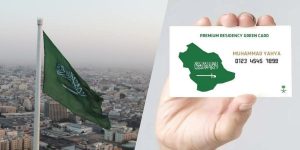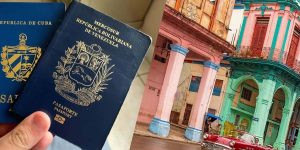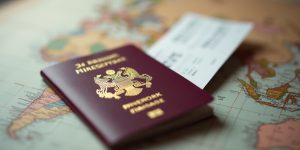Planning an international trip with your baby raises a common question: Do infants need a passport? Yes, every child, from newborns to toddlers, must have a valid passport for overseas travel. This ensures smooth immigration, avoids last-minute hassles, and keeps your journey compliant with travel rules.
This guide covers everything parents need: passport requirements for infants, step-by-step application process, fees, essential documents, and practical travel tips for babies. Follow these tips to make your family’s international trips safe, stress-free, and fully compliant with all regulations.
Why Do Newborn Babies Need a Passport?
A passport is an official government-issued document that proves a person’s identity and nationality. For international travel, proof of citizenship is mandatory, so every infant and newborn must have their own passport. Babies can no longer be added to their parents’ passports, making it essential for all children, regardless of age, to carry a separate passport when traveling abroad.
Key Reasons:
- Immigration: Airlines and border authorities require every traveler to have a passport.
- Global Security: Most countries enforce strict ID and verification protocols.
- Visa Applications: A passport is mandatory to obtain a visa.
- Official ID: A passport acts as a newborn’s first government-issued identity document.
How To Apply For An Infant’s Passport?
Both parents must be present to apply for the infant’s passport, and it involves the following steps, with specific documentation requirements to get a passport for your baby.
1. Fill Out Form DS-11
Use the Form Filler to complete your child’s DS-11 passport form, print single-sided, and don’t sign until instructed by the agent.
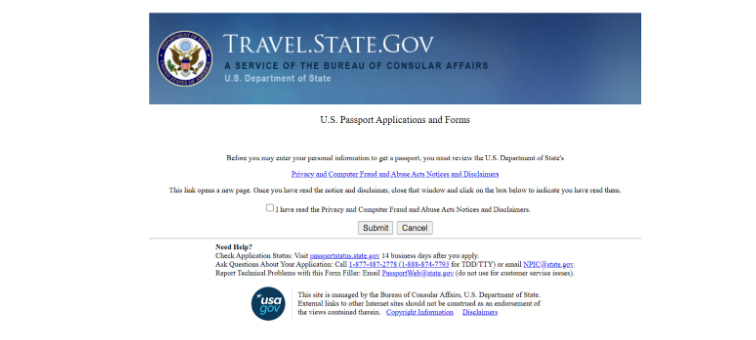
You can choose a passport book, card, or both, and request a large book if your child travels internationally often. Keep in mind that there is a difference between a passport and a visa; a passport only proves citizenship and identity, and you may also need a visa depending on your destination.
2. Get Evidence Of The Child’s U.S. Citizenship
For your infant’s passport application, you must provide original, physical proof of U.S. citizenship with an official seal or stamp from the issuing government office. Here’s what you can use:
U.S. birth certificate that meets all requirements:
- Shows the official seal or stamp from the city, county, or state of birth.
- Includes your baby’s full name, date of birth, and place of birth.
- Lists both parents’ full names.
- Shows the date it was filed with the registrar’s office (must be within 1 year of birth).
- Includes the registrar’s signature.
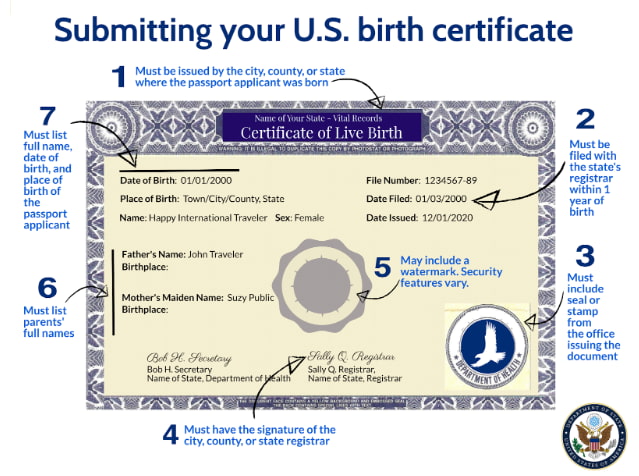
- Consular Report of Birth Abroad or any birth document issued by the U.S. Department of State.
- Certificate of Citizenship issued by U.S. Citizenship and Immigration Services.
- An undamaged, valid, or expired U.S. passport for your baby.
You must submit only paper proof of U.S. citizenship, not digital or electronic versions, and include both the original document and a photocopy.
3. Proof Of Relationship To The Infant
If the birth certificate doesn’t show your relationship with your infant, you should prove you’re the legal parent or guardian. Documents you must submit may include:
- Foreign birth certificate.
- Adoption decree.
- Divorce or custody decree.
- A court order.
4. Parents’ or Guardians’ Photo IDs
Both parents must bring valid photo IDs, such as driver’s licenses. If your ID is from another state, bring another applicable photo ID as mentioned earlier.
5. Photocopies And Additional Documents
You must provide a photocopy of your child’s citizenship evidence (with the original) and a photocopy of the front and back of each parent/guardian’s photo ID.
If one parent can’t come, you must provide additional documents as follows:
| If this happens… | Here’s what you must do… |
|---|---|
| One parent can’t come, but both have custody | That parent should fill out Form DS‑3053 (Statement of Consent), get it notarized, and give a photocopy of the ID. |
| You’re the only parent / have sole custody | Show proof of court order for sole custody or permission to apply, OR certified birth certificate/adoption paper with only your name, OR death certificate of the other parent, OR court paper saying the other parent is legally incompetent. |
| Can’t find the other parent, but both still have custody | Fill out Form DS‑5525 (Special Family Circumstances). They may still ask for proof, like a custody order, a restraining order, or a military DS‑3053 if the other parent is deployed. |
| Neither parent can come | Give Form DS‑3053 or a notarized letter from both parents giving another person (like a grandparent) permission to apply with the child. Bring photocopies of both parents’ IDs. If only one signs, show proof that they have sole custody. |
You should properly understand all the requirements and rules if any of the above cases apply to you.
6. One Passport Photo Of The Infant
Get one passport photo of your infant that meets official size and quality standards. Don’t attach it to the form before your appointment.
7. Payment For Passport Fees
When you are applying for your infant’s passport, you have to pay two fees, one for the passport application and the other for the acceptance fee.
| Documents | Passport Application Fee | Facility Acceptance Fee |
|---|---|---|
| Passport Book | $100 | $35 |
| Passport Card | $15 | $35 |
| Passport Book & Card | $115 | $35 |
You can pay by check or money order to “U.S. Department of State”, writing your child’s name and DOB in the memo. You should ask the acceptance facility how to pay their $35 fee.
8. Find A Location To Apply In Person
You should submit your application, documents, and fees to your nearby passport acceptance facility. The passport agent will verify your application, take your signature, and give you an oath.
9. Track The Application Status
After you submit your infant’s passport application, the facility will mail it to the U.S. Department of State for processing, which may take up to two weeks. After that, you can check your application status, or if you have given an email, then you will get updates on it.
What Is The Minimum Age For An Infant’s Passport?
There is no minimum age requirement for U.S. passports. Newborn babies can receive passports immediately after birth once you have their birth certificate and required documents.
Infant passports are valid for five years, unlike adult passports, which last ten years. This shorter validity period accounts for the rapid physical changes that babies experience during early childhood.
Additional Reads: If you are planning a long-distance travel internationally, you should explore the longest flights in the world.
Can Infants Travel Without Passports?
For international air travel, infants cannot travel without passports. Every person needs to have a passport if they are traveling internationally by air, no matter what their age is.
For domestic travel within the United States, babies do not need passports or any identification documents. In addition to this, there are some amazing destinations worth exploring where U.S. citizens can travel without a passport.
How Long Does It Take To Get A Passport For An Infant?
Standard passport processing for infants takes up to around 10 weeks from application submission to receiving the document. This timeline applies to routine service without paying for expedited processing.
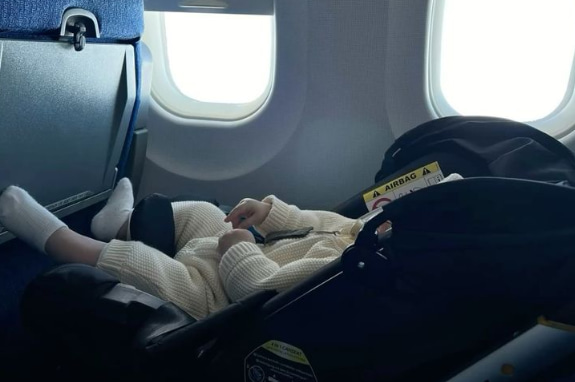
So it takes 2 weeks to send your application to the officials and 2 weeks for you to get passports after getting the mail. The routine processing time is usually 4-6 weeks. If you want your infant’s passport fast, you can go for the expedited service after paying extra money.
Essential Travel Tips for Parents Traveling Abroad with Infants
Traveling internationally with infants can be challenging, but careful preparation ensures a smooth journey. Here are some important tips for parents:
- Carry Originals & Copies: Always take both original and photocopies of your baby’s passport, birth certificate, and consent forms.
- Apply Early: Submit the infant passport application well in advance to avoid last-minute delays.
- Check Visa Requirements: Verify the visa rules for infants of your destination country before booking travel.
- Maintain Name Consistency: Ensure your baby’s name is consistent across all documents to prevent immigration issues.
- Consider Infant Travel Insurance: Protect your child with travel insurance specifically for infants in case of emergencies.
- Plan for Airport & Flight Needs: Pack essentials like diapers, baby food, and comfort items for a smooth travel experience.
Following these tips helps parents meet all passport and travel requirements for infants, making international trips safe and hassle-free.
Related Reads:
Conclusion: Infants Need Passports To Travel Internationally By Air
Every infant needs a passport for international travel, making early planning essential for families with travel plans.
This guide covered the nine-step application process, required documents, fees, and important timelines for obtaining your baby’s first passport safely and efficiently.
Start your infant’s passport application early, gather all required documents, and schedule your appointment to ensure smooth international travel with your little one.
FAQs
Babies need passports from birth for international air travel. There is no minimum age requirement to have a valid passport to cross international borders by plane.
A baby’s passport costs $135 total, $100 application fee to the State Department plus $35 acceptance fee to the facility.
Most pediatricians recommend waiting until babies are at least 3-6 months old before international travel. Consult your pediatrician about vaccinations, health precautions, and travel readiness.
Newborns cannot travel internationally without passports. All U.S. citizens, regardless of age, must have a valid passport for international air travel.
You can carry baby water and formula through airport security. Baby food, formula, and breast milk are exempt from the liquid rule, but must be declared and screened separately.
